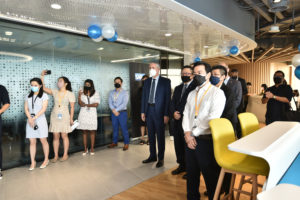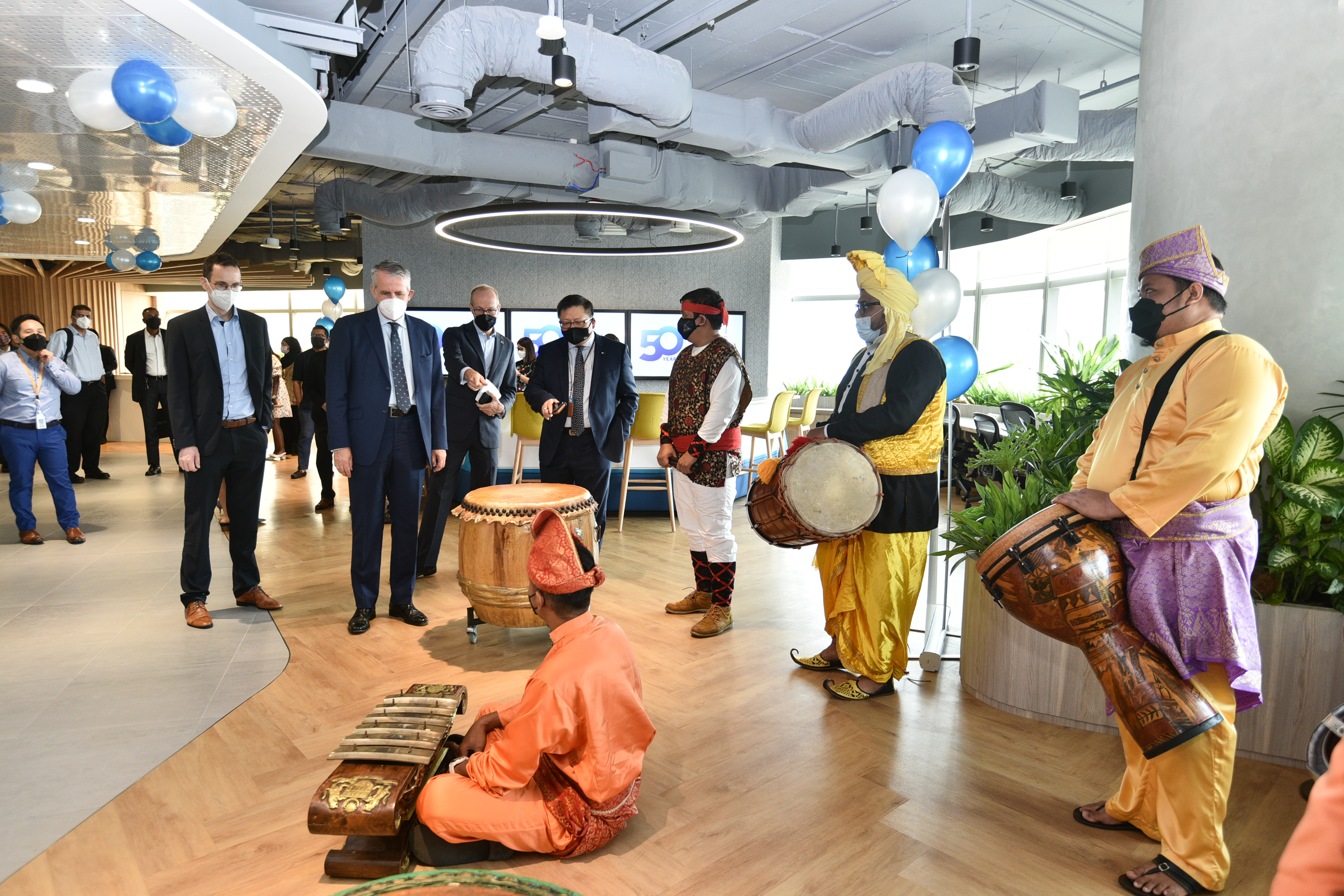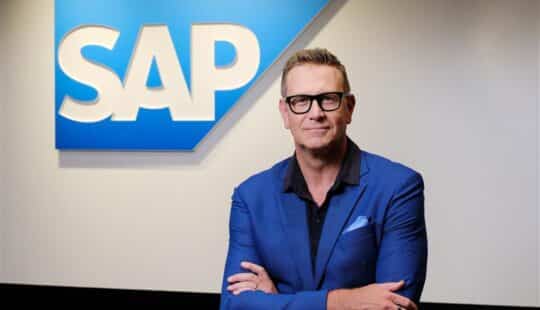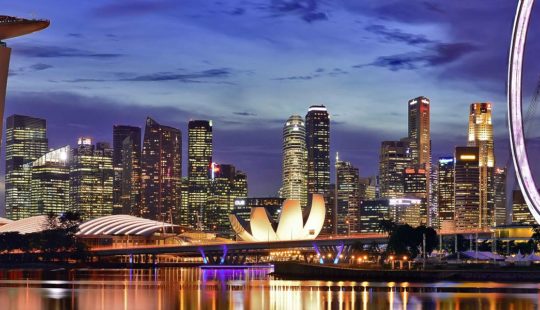KUALA LUMPUR – Nation-building is a key priority for SAP Malaysia and the company aims to continue playing a role to elevate Malaysia’s overall competitiveness in a post-pandemic world.

SAP Malaysia’s managing director Hong Kok Cheong said that SAP would continue to be supportive of technology’s role for Malaysia to realise sustainable growth currently and in the years ahead.
“Our focus predominantly centres around upskilling and youth employment, together with local businesses readiness for Industrial Revolution 4.0 (IR4.0) along with the transition to intelligent technologies on the cloud,” said Hong, during the company’s event to commemorate its 30th anniversary in Malaysia on 25th March 2022.
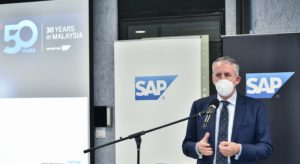
SAP Malaysia’s nation-building efforts include its collaboration with Malaysia Digital Economy Corporation (MDEC) on the MyUniAlliance programme which provides training for around 3,000 students per year transcending some 18 higher learning institutes, including two foreign universities. The company also prides itself on its diverse and inclusive culture.
“SAP is today one of the world’s largest providers of enterprise application software with the broadest portfolio of modular and suite solutions available on premise, in the cloud and hybrid. As such, we are in a strong position to help realise greater competitiveness for Malaysia especially in today’s era of IR4.0,” he added.

“SAP is committed to enabling enterprises to become intelligent, networked and sustainable. This means bringing together the solutions, technology and best practices needed to run integrated, digital business processes in the cloud,” said Hong.
“As a result, our customers have the agility to respond faster to market changes, unlock new sources of growth and lead in their respective industries. These enterprises are also able to collect insights from customers, employees, products, and brands at every touch point, use powerful technology to sense opportunities, risks, and trends and turn this intelligence into action across every part of the business.”
The guest-of-honour at the event was Germany’s ambassador to Malaysia His Excellency Dr Peter Blomeyer.
Also present at the event was Malaysian-German Chamber of Commerce and Industry (MGCC) CEO Daniel Bernbeck who praised SAP Malaysia for its efforts in empowering local businesses with latest technologies such as artificial intelligence, machine learning, advanced analytics and the internet-of-things.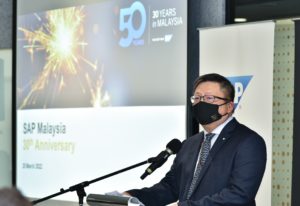
“These technologies go a long way in elevating competitiveness within today’s digital economy and they enable businesses to be better prepared for the Fourth Industrial Revolution,” said Bernbeck.
He also encouraged local businesses to make the transition to becoming ‘intelligent enterprises’.
“By becoming intelligent enterprises, businesses can do more with less, deliver best-in-class customer experience, build resilient supply chains, while inventing new business models and revenue streams,” added Bernbeck.
MGCC is the official representative of German industry and trade in Malaysia and currently has almost 400 members and is part of the global network of German Chambers of Commerce Abroad (AHK network) with 140 offices in 92 countries. It is today the largest bilateral European business chamber in Malaysia and serves as a service partner for companies seeking to establish a market presence here or to increase their involvement in Malaysia. It is supported by the Federal Ministry of Economic Affairs and Climate Action based on a resolution of the German parliament, the Bundestag.
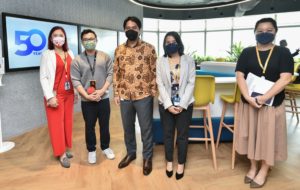
SAP Malaysia’s Deep Alignment with 12MP
Meanwhile, Hong said that SAP’s mission in Malaysia is deeply aligned with the sustainability goal outlined within the 12th Malaysian Plan (or ‘12MP’). Under the 12MP, the goal is for Malaysia to become carbon-neutral as early as 2050, with carbon pricing and carbon tax to be introduced.
“All these aspects – social, environmental, and economic activities and performance – are interrelated with each aspect impacting the others. Hence, our efforts focus on helping to create a sustainable future for Malaysia, our customers, and society at large,” said Hong.
He further explained that the circular economy is based on three principles driven by design: (1) eliminate waste and pollution, (2) circulate products and materials, and (3) regenerate nature.
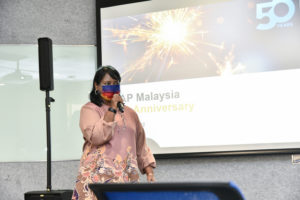
“Digital solutions enable businesses to embed circular practices across their operations, from designing products to help reduce waste from the outset, to tracking the lifecycle of the materials they use.
“At our end, SAP’s data-driven approach lets businesses embed sustainability comprehensively to gain actionable insights across the value chain to enable companies to transition to low-carbon business processes. This way, businesses can proactively identify the carbon impact at the beginning of the product lifecycle instead of reactively after a product has been produced.”
Today, SAP customers generate some 87% of total global commerce (USD46 trillion, or approximately RM192 trillion) while 99 of the world’s 100 largest companies are SAP customers. Meanwhile, 80% of the world’s SMEs are SAP customers.
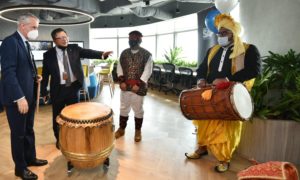
At the event, SAP customers also shared their digital transformation ‘best practices’ which had resulted in greater productivity and operational efficiencies with DKSH Holdings (Malaysia) Berhad and IOI Corporation Berhad cited as an ‘industry best practices’.
In Malaysia, SAP has numerous customers from various industries with a ‘customer first’ approach transcending people, processes and platforms, especially cloud platforms.
